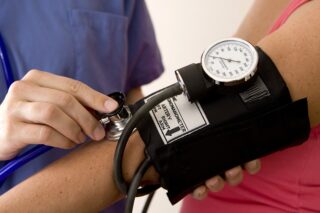
Catheter ablation is a treatment option for some patients experiencing atrial fibrillation. This is a minimally invasive procedure that can help relieve symptoms. If you have AFib, read more so you can make an informed decision about your heart health.
What is Catheter Ablation?
Catheter ablation is a non-surgical procedure performed by an electrophysiologist. Electrophysiologists are specialized cardiologists, also known as EP doctors. When they perform this procedure, they use a 3D cardiac mapping system that serves like a navigation system to create a real-time map of your heart. This process is called an EP study. The EP doctor then places a catheter into your heart, using it to pinpoint areas with abnormal electrical signals.
Types of Ablation
There are three different types of ablation that you’ll want to learn about:
Radiofrequency ablation is when an electrophysiologist uses catheters to send radiofrequency energy similar to microwave heat. This creates circular scars around veins or groups of veins where there may be a problem.
Cryoablation uses a single catheter with a balloon that is tipped in freezing material to cause scar tissue in problematic areas.
Fluoroless catheter ablation requires no fluoroscopy, which means that no radiation is involved. That makes it safest for both the patent and the doctor. Heart Rhythm Consultants is one of the only practices in the region to offer this type of advanced technology. You can learn more about it here.
Do I Need Catheter Ablation?
Catheter ablation is performed to stop atrial fibrillation from happening, relieve symptoms, and help reduce your risk of stroke. Your doctor will help you determine if ablation is a good fit for you by considering the following:
- How severe your symptoms are.
- If you have structural problems within the heart.
- Whether you’ve tried oral medications already. If symptoms did not subside or you have side effects that are hard to live with, ablation may be a good option.
In general, catheter ablation is recommended for AFib patients when medication proves unsuccessful. Your doctor may suggest ablation before trying medication if you’d like to correct the issue without risking medication side effects.
What to Expect
Recovery times from this procedure are generally quick with hospitalization for one or two days so your doctor can monitor your heart. Afterward, you may take antiarrhythmic medication for a few months to prevent abnormal heart rhythm. You may also feel palpitations or other symptoms after the procedure, which may occur as your heart is healing.
If you think you may be suffering from a heart rhythm disorder, contact the experienced cardiologists at Heart Rhythm Consultants for additional information about testing and treatment options. Our priority is your health and wellbeing above all else, and our team is here to help you with any questions. Contact us to speak with a care coordinator today.



